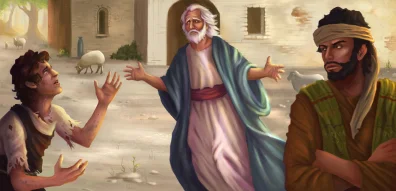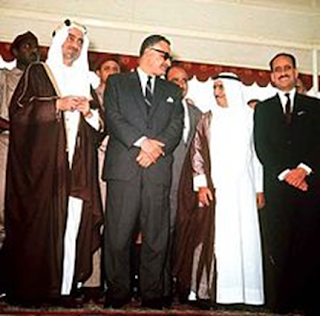The Brother of the Prodigal Son: Then & Now
In the Gospel of Luke 15:11-32 we read the Parable of the Prodigal Son. In it, we read the story of how the son of a wealthy man asks for his share of the inheritance, which his father grants to him. His son left home, squandered his fathers wealth on a life of materialism & debauchery. Before long, the wealth ran out, and the Prodigal son was reduced to doing the most degrading of work, feeding swine, in order to survive. As the Prodigal son hit rock bottom, he came to his senses, returned to his father in rags & tears, begging forgiveness and acknowledging he was not worthy to be his son. However, his father immediately embraced his son, clothed him, and threw him a great feast. When the Prodigal Son's Brother heard what was happening, he was filled with resentment. He had in his mind dedicated himself to serving his Father faithfully asking nothing in return, while his brother, who squandered all that was given to him, had returned and was given a great feast. The Father then pleaded with his son and told him that he loved him and all that he had was his, but now was a time of rejoicing for his brother was lost, but now had been found, he was dead, but had come back to life.
The Prodigals Son's Brother in this time represented the Pharisee's. During the time of Christ they represented the highest level of the Jewish community, the great teachers of God, those who seen to both teach and set the example for the community. They, like the Brother of the Prodigal Son, held themselves in great esteem, but they had a fatal flaw, they looked down on the dregs of society, much like the Brother looked down on his brother, the Prodigal Son. They saw themselves as righteous men, while those who fell away from God into the life of sin were the scum of society who should simply be swept away and ignored. However, the Brother, like the Pharisee's, were not adhering to one of God's greatest attributes: Forgiveness.
The Father saw how his Prodigal Son had realized his error, how he was desperate to turn from the trap of sin. When the Father saw this, he did not turn him away. He did not tell him "you squandered your gifts and now you're getting your comeuppance. He did not cast him out to the fields and say "You want to stay, then start earning your place." He welcomed him with open arms, clothed him, forgave him, and took him back home and fed him. However, the Brother of the Prodigal son, while believing he was doing his duty to his father, was doing so out of a sense of obligation, not out of love. So when he was his Prodigal brother being doted on, he did not reach out for forgiveness, as the Father did, but instead turned to the sin of resentment. The Brother of the Prodigal Son didn't react to his brother's return with joy, but with scorn, anger, and looks of judgement.
Now this parable is often taught in our churches and is widely celebrated as one of the greatest parables taught by Jesus. However, as Christians, do we see ourselves acting more like the Father of the Prodigal Son, or the Brother? When we see people who have fallen into sin, and doing the most disdainful things to survive in the life that they have fallen into, how do we react? When we see drug addicts selling themselves for money so they can buy food to survive and drugs to temporarily satisfy their addiction, do you look at them with compassion, or with scorn? When we see people like this enter churches & help centers, seeking to turn away from the life they've fallen into, but scared that they lack the strength and fearful of how they'll be received, do we act like the Father, sit next to them in church, & embrace them, or do we simply keep our distance and look at them with judgement & contempt. Do we say "welcome home," or do we say "you have no place here."
The story of the Prodigal Son is as relevant today as it was 2,000 years ago. Though at times it may be difficult, and at times we are tempted to look upon people with judgement and contempt, we must remember the example that Jesus taught us. That we are to be like the Father, and not the Brother.




Comments
Post a Comment